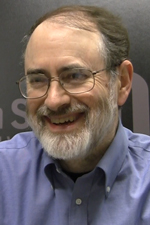Abstract

“Teaching Machines to Learn”
June 10, 2015
Location: Valley Library, Oregon State University. Watch Video | Download Transcript (PDF)
In the interview, Dietterich recounts his upbringing, family background, and early interests as a child, including his fascination with the NASA space program and his first encounters with computing. He then describes his undergraduate studies at Oberlin College, noting his heavy involvement with student government and his academic work in mathematics. He likewise discusses his continuing infatuation with computing - which he pursued both for fun and for employment during his undergraduate years - and his initial exposure to the foundations of machine learning.
From there Dietterich recalls his master's studies at the University of Illinois, including his research on the use of machine learning in plant disease diagnosis and his work in game theory. He notes a summer job that he held at Bell Telephone Labs, describes the circumstances by which he moved to Stanford University to pursue his Ph.D., and details the investigations into applied artificial intelligence that he conducted as a doctoral student.
The session next turns it attention to Dietterich's association with Oregon State University. He recounts his move to OSU as a "trailing spouse" following his wife, who had already obtained a faculty position in the Department of Botany and Plant Pathology. He likewise shares his memories of his initial impressions of OSU, the ragged state of the Computer Science department at the time of his arrival, and the steady improvement that the department has seen in the years since. He also details the technical infrastructure that was available to him during his early years at Oregon State and shares some background on the use of email during its infancy.
Dietterich then discusses several high points of his research career, including a few landmark papers that he authored that helped to advance the field of machine learning. He also describes his association with Arris Pharmaceutical - including his contributions to the company's initiative to synthesize a variety of molecules - and his work on hierarchical reinforcement learning. He specifically reflects on his interest in applying machine learning to ecological problems, discusses his collaboration with the Cornell University Laboratory of Ornithology, and notes his involvement with private sector enterprise projects, including recommendation software packages developed by Strands, Inc. and BigML.
The session concludes with Dietterich's thoughts on the forward march of artificial intelligence and his perspective on popular fears that humans might someday lose control over the technologies that they have created.

